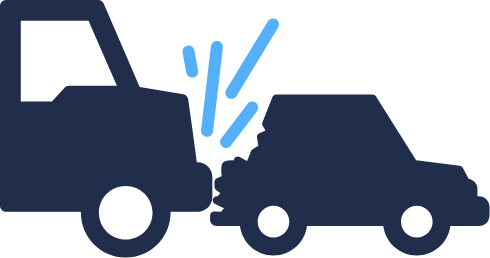The Future of Motor Vehicle Accident Lead Generation: Trends and Projections

Motor vehicle accident (MVA) lead generation can be an important part of legal marketing. For many firms, it involves strategies that attorneys employ to attract potential clients who have been involved in traffic accidents. This niche can be seen as particularly vital because it targets individuals who often find themselves in urgent need of legal guidance and representation, typically after experiencing a life-altering event.
The process of generating these leads is multifaceted and demands an understanding of both the legal landscape and the unique needs of accident victims. For law firms, MVA leads are not just potential clients; they often represent real people seeking assistance during some of the most challenging times of their lives. Therefore, the generation of these leads goes beyond mere business development. It's about connecting with individuals in their moment of need, providing them with information, support, and legal expertise.
This aspect of legal marketing is crucial for several reasons. Firstly, the volume of motor vehicle accidents, unfortunately, remains high, constantly creating a demand for legal services. Secondly, the complexity of such cases, including navigating insurance claims, dealing with medical bills, and sometimes, court proceedings, makes professional legal assistance indispensable.
For attorneys, these leads can be a significant source of business, contributing to the growth and sustainability of their practice. Hence, effective MVA lead generation strategies are often important for law firms looking to establish or maintain their prominence in this area.
Current Trends in Motor Vehicle Accident Lead Generation
In the realm of MVA lead generation, a diverse range of methods is currently in use. Traditional advertising methods, such as television commercials, billboards, and print ads, continue to play a role. These methods have the advantage of broad reach but often lack the ability to target specific demographics closely associated with MVA leads.
More contemporary strategies involve digital marketing tactics:
- Search Engine Optimization (SEO) is employed to ensure that a law firm's website appears prominently in search results related to motor vehicle accidents.
- Pay-Per-Click (PPC) advertising, another digital strategy, allows firms to place ads in search engine results and only pay when potential clients click on these ads.
These digital methods offer the advantages of targeting specific audiences and measuring campaign effectiveness through detailed analytics.
Partnerships with lead generation companies also play a significant role. These companies specialize in gathering leads and then selling them to law firms. This method can provide a steady stream of potential clients but often raises concerns about the quality and exclusivity of the leads.
However, these methods are not without challenges. The cost of acquiring leads, especially through digital methods, can be high due to competitive bidding for ad placements and the need for continuous SEO management. Market saturation is another significant issue, as numerous law firms vie for the attention of a limited pool of potential clients.
Technological Advancements and their Impact on Motor Vehicle Accident Lead Generation
The advent of artificial intelligence (AI) and machine learning represents a notable shift in how MVA leads are generated. AI algorithms have the capability to sift through extensive data sets, identifying patterns and insights that would be impossible for humans to discern in as little time. For instance, AI can analyze traffic accident reports, social media activities, and search engine queries to identify individuals who are more likely to need legal services following a motor vehicle accident.
Machine learning, a subset of AI, is particularly advantageous in refining lead generation strategies over time. These algorithms learn from previous outcomes, continually improving the precision of targeting potential clients. For example, machine learning can adjust advertising campaigns in real-time, focusing resources on the most effective channels and messages that resonate with the target audience.
The impact of these technologies is not limited to just lead identification. They also play a crucial role in personalizing communication. In some fields, AI-driven chatbots and automated email systems can engage with potential clients at any time of the day, providing immediate responses and information, which is crucial in a sector where timely support can be a deciding factor for clients.
Shifting Consumer Behavior and its Implications on Motor Vehicle Accident Lead Generation
The shift in consumer behavior in the digital age has noteworthy implications for MVA lead generation. Nowadays, a large number of potential clients begin their search for legal services online. This change may mean that the first interaction a potential client has with a law firm can be through its digital presence, be it a website, a social media profile, or online reviews.
The reliance on online research and reviews has made it imperative for law firms to actively manage their online reputation. Positive reviews and testimonials may sometimes influence potential clients' perception of your firm. Law firms can encourage satisfied clients to share their experiences online and address any negative reviews in a professional manner.
Social media has also become a crucial platform for engaging with potential clients. Platforms like Facebook, Twitter, and LinkedIn offer opportunities for law firms to share relevant content, participate in discussions, and directly engage with individuals who might need their services. By establishing a strong and interactive social media presence, law firms can work to build trust and recognition, key factors in a client’s decision to choose a specific attorney.
Projections and Future Outlook for Motor Vehicle Accident Lead Generation
Looking ahead, while the future is impossible to predict, we may see continued evolution in MVA lead generation, driven by technological advancements and changing consumer expectations. Anticipated challenges include increased competition and the need for greater personalization in marketing efforts. Attorneys are recommended to stay informed about industry trends, invest in emerging technologies, and adapt their strategies to maintain a competitive edge.
Conclusion
The landscape of motor vehicle accident lead generation is continuously evolving. As such, lead generation isn’t always about following trends, but sometimes can involve attempting to identify them as they emerge. It’s often helpful to remain mindful of current trends, technological advancements, shifting consumer behaviors, and future projections in the field. Attorneys are encouraged to embrace these changes, leveraging innovative strategies and technologies to stay ahead in the dynamic market of MVA lead generation.
Remember, if you’re looking for ways to transform the approach your firm takes to lead generation, Legal Growth Marketing may be able to help. At Legal Growth Marketing, we’re committed to transforming the lead generation process. To see for yourself, book a meeting with sales today.



